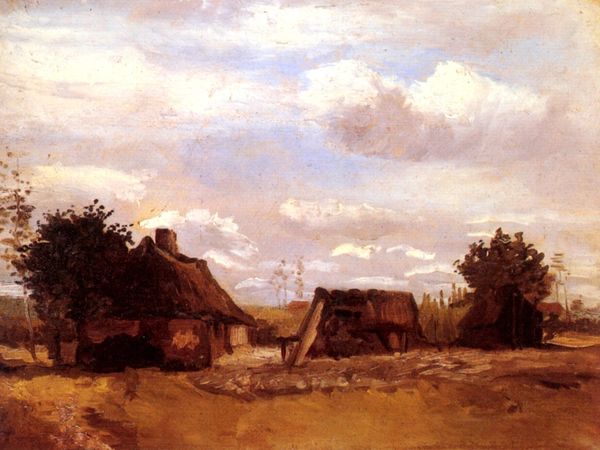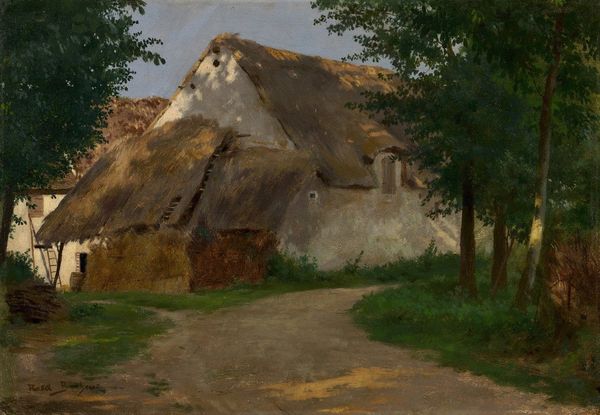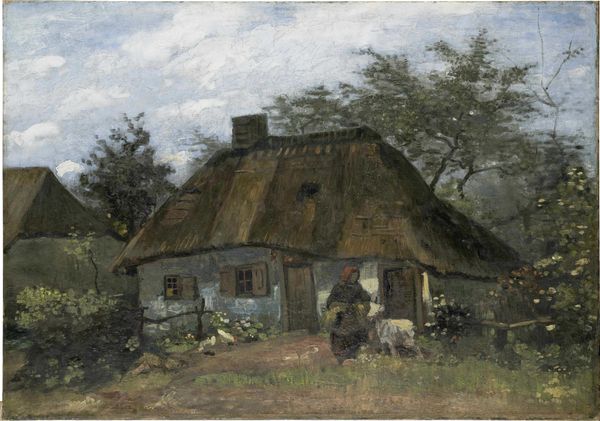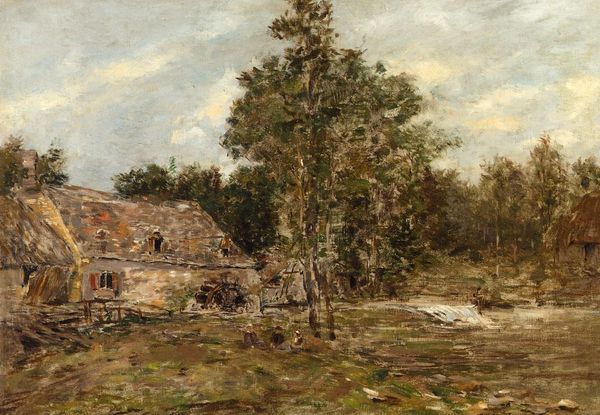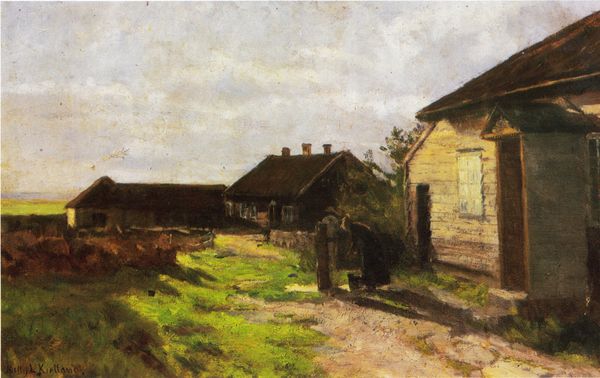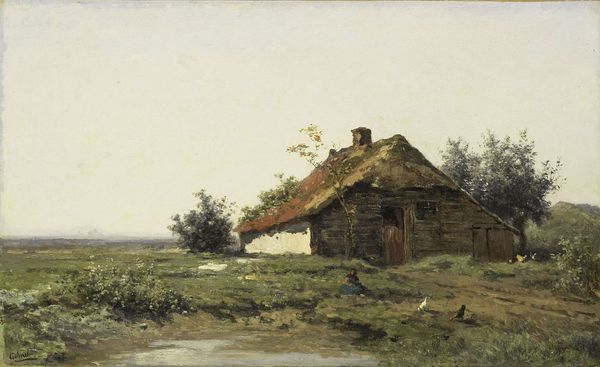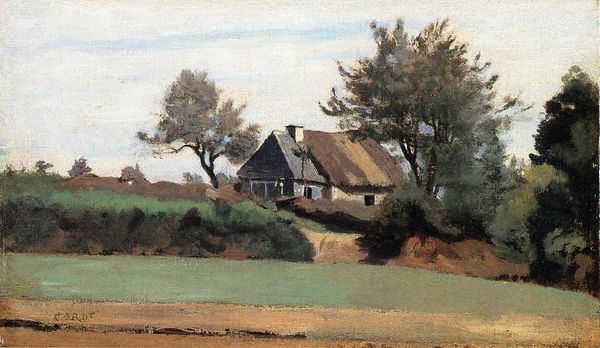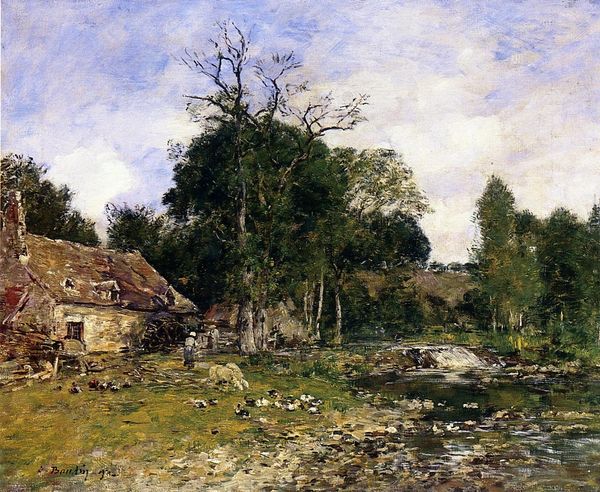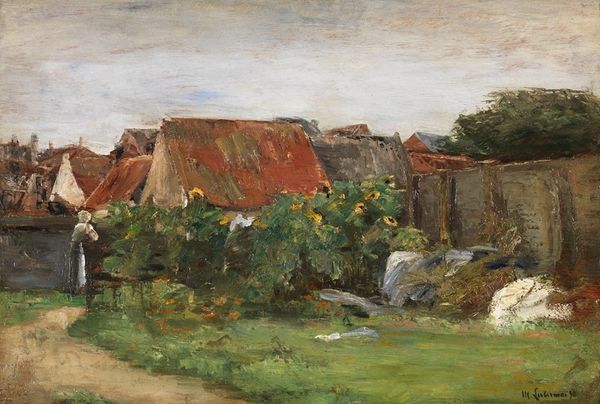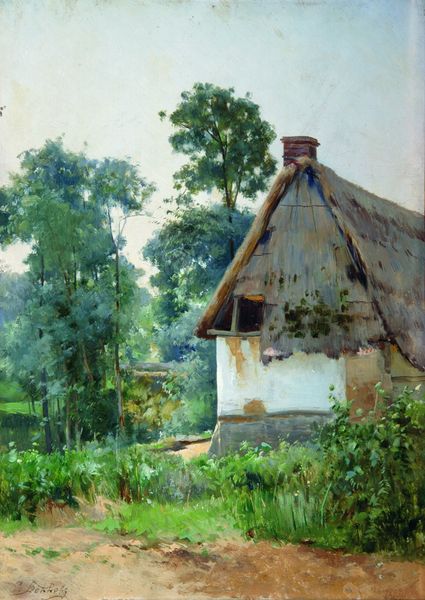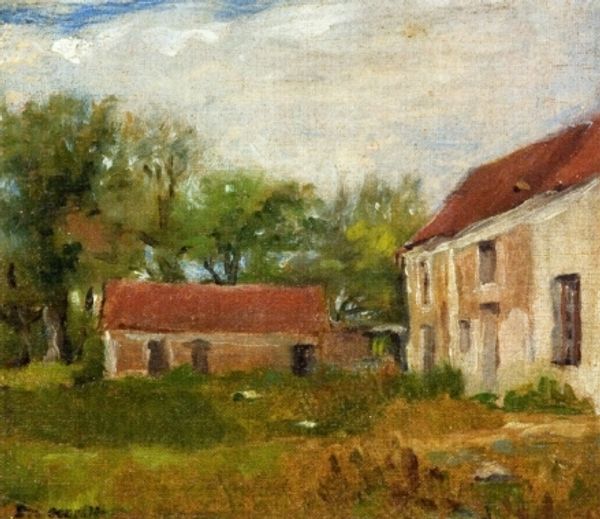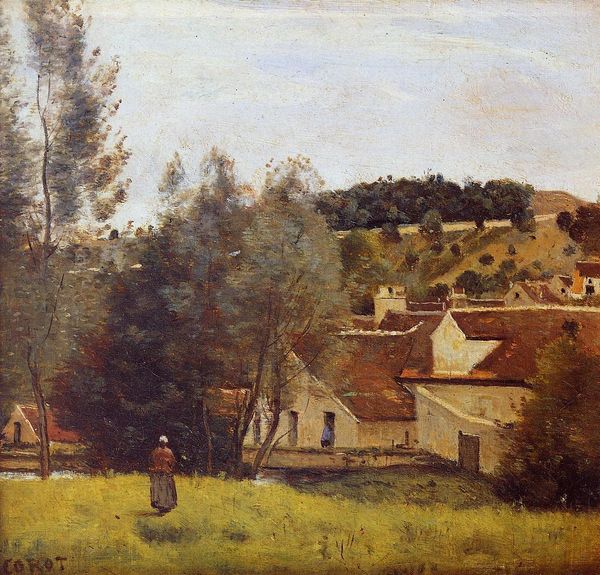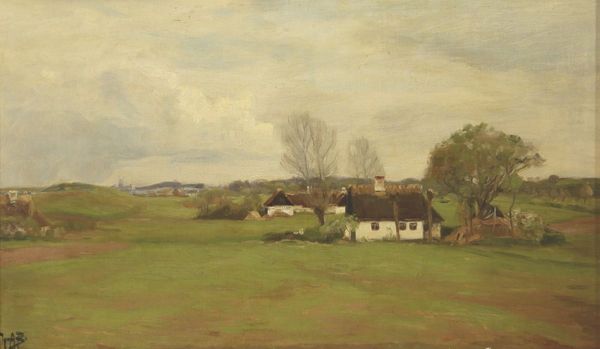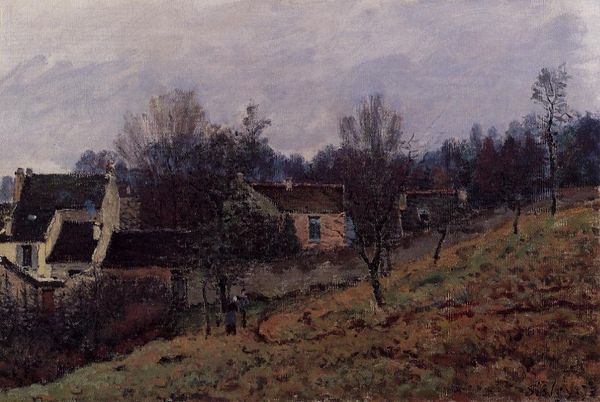
painting, plein-air, oil-paint, architecture
#
painting
#
impressionism
#
plein-air
#
oil-paint
#
landscape
#
oil painting
#
architecture
Copyright: Public domain
Editor: This is Monet's "Farm near Honfleur," painted in 1864 using oil on canvas. It's interesting to see this early work; it feels quite grounded compared to his later, more ethereal pieces. The farm has a sturdy, almost melancholic presence. How do you interpret this work, especially considering the social context of rural France at the time? Curator: This piece offers a fascinating glimpse into Monet’s early engagement with the socio-political landscape. Rural life in 19th-century France was undergoing significant transformations, marked by industrialization and urbanization. Monet, by depicting this farm, participates in a visual discourse about the changing identity of France. Consider the architectural style. It speaks to a specific regional vernacular, highlighting the cultural identity of Normandy. What might Monet be saying about the value – or the precarity – of this way of life? Editor: It almost feels like he’s documenting a vanishing world. There’s a stillness, a quietness that suggests a kind of preservation, but also perhaps a sense of isolation. Curator: Exactly! And think about what wasn't included in the frame. Why exclude, or marginalize, the people connected with the Farm? Is he attempting to universalize rural life or unintentionally silencing a very specific lived experience? Moreover, his choice of the ‘plein-air’ technique… it wasn't simply about capturing light. It was about placing himself within, and attempting to record, a specific moment in time. It makes you wonder: What is he hoping to conserve by painting outside? Editor: I hadn't considered the absences within the frame. Viewing this through that lens offers a much deeper perspective. I see this painting now as an index to the complex negotiations of identity happening in that period. Curator: Precisely. It allows us to look critically at whose stories are told, and how, during times of profound societal shift. I appreciate your engagement; it's clear you are prepared to engage critically.
Comments
No comments
Be the first to comment and join the conversation on the ultimate creative platform.
